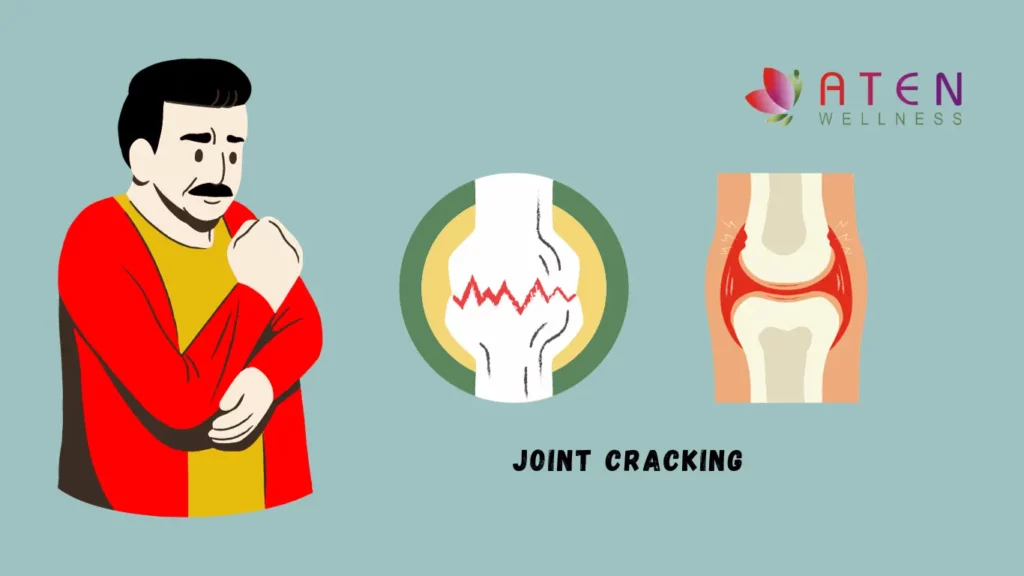Why Do My Joints Crack All the Time?

Joint cracking, a phenomenon experienced by many, often raises questions about its causes and implications. In this comprehensive guide, we delve into the reasons behind the question “Why Do My Joints Crack All the Time?” and explore the various factors contributing to this intriguing yet common occurrence.
Understanding Joint Cracking
What Causes Joints to Crack?
Joint cracking, characterized by popping or crunching sounds, is often attributed to the release of gas bubbles within synovial fluid. Contrary to common misconceptions, this is not necessarily a sign of underlying joint issues. The process, known as cavitation, occurs when the pressure within the joint changes, leading to the release of nitrogen bubbles.
Frequency and Types of Joint Cracking
The frequency of joint cracking varies among individuals. Some experience it regularly, while others rarely do. Understanding the different types of joint cracking, including voluntary and involuntary, can provide insights into its nature and possible causes.
Debunking Myths: Why Do My Joints Crack All the Time?
Myth: Joint Cracking Causes Arthritis
Contrary to popular belief, there is no conclusive evidence linking joint cracking to arthritis. Numerous studies have debunked this myth, emphasizing that joint cracking is generally harmless and unrelated to the development of arthritis.
Myth: Cracking Joints Indicates Joint Damage
Another prevalent misconception is that joint cracking signifies joint damage. Medical research suggests that, in most cases, joint cracking is a benign occurrence and not indicative of underlying structural issues.
Factors Influencing: Why Do My Joints Crack All the Time?
Age and Joint Cracking
Age plays a significant role in joint cracking, with the phenomenon being more prevalent in older individuals. This is often associated with changes in the composition of synovial fluid and joint structures over time.
Flexibility and Joint Cracking
The level of flexibility in individuals can influence joint cracking. Those with greater joint flexibility may experience more frequent cracking due to the increased range of motion.
Habitual Factors
Certain habits, such as habitual knuckle cracking, can contribute to joint cracking. While this behavior is generally harmless, moderation is key to avoiding potential joint strain.
The Role of Lubrication
Joint cracking often stems from friction and the movement of bones against each other. In some cases, insufficient lubrication within the joints can exacerbate this friction, leading to audible cracking sounds.
Benefits of Oil Massage
Oil massage serves as a practical solution to enhance joint lubrication. The application of specific oils can promote smoother movement between joints, reducing friction and minimizing the likelihood of cracking.
Unveiling Solutions for "Why Do My Joints Crack All the Time?"
Discover relief for persistent joint cracking with AteOrtho Ayurvedic Relief. Our carefully crafted formula, rooted in Ayurvedic wisdom, targets the reasons behind constant joint noises, offering a natural and effective solution. Embrace a holistic approach to joint health—explore the benefits of AteOrtho today.

Why AteOrtho?
Effective Relief: AteOrtho is formulated for effective relief from constant joint cracking, supporting improved joint health.
Natural Solutions: Embrace a natural path to joint comfort, avoiding harsh chemicals and prioritizing your overall well-being.
Trusted Wellness: Aten Wellness is your trusted partner in health. Choose AteOrtho for your joint concerns and experience the difference.
Enhance your well-being—try AteOrtho today and address the persistent question, “Why Do My Joints Crack All the Time?” Visit AtenWellness for more insights into holistic wellness solutions.
Conclusion
In conclusion, joint cracking is a common occurrence with various factors influencing its manifestation. Debunking myths and understanding the underlying mechanisms can contribute to a clearer perspective on this natural bodily phenomenon.
Oil massage emerges as a natural and accessible solution for addressing joint cracking. By understanding the causes of joint cracking and selecting the right oils, individuals can incorporate this therapeutic practice into their routine. Embracing best practices and considering complementary therapies further enhances the potential benefits, contributing to improved joint flexibility and overall well-being.
